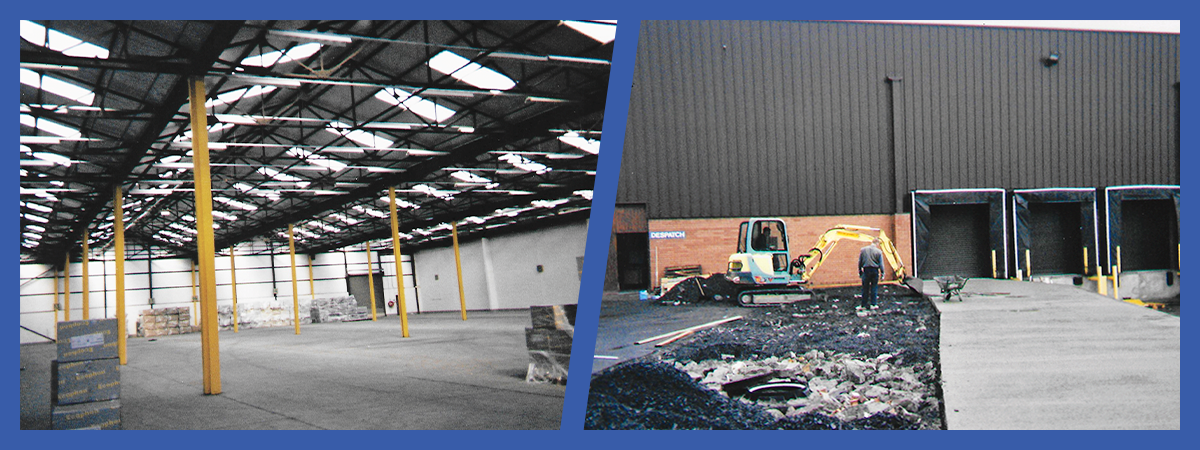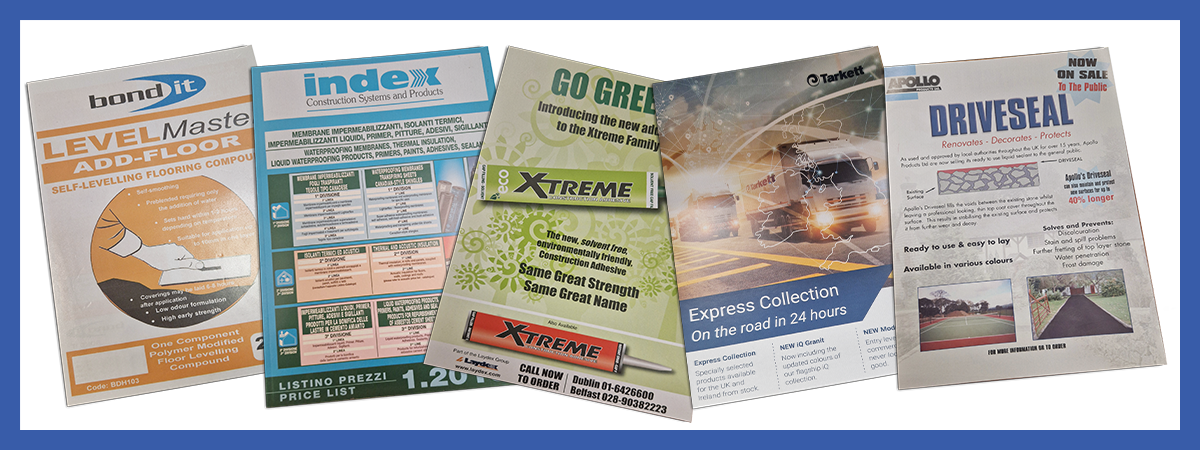As Laydex celebrates three decades in business, this moment offers an opportunity to mark the years and a chance to reflect on how ambition, trust, and resilience became part of our culture.
We begin with the story of Laydex’s founder: Ian Woods.
The Spark – 1995
Laydex was born from a bold move in the summer of 1995. Ian Woods, then Managing Director of Colas (a subsidiary of Royal Dutch Shell), saw an opportunity when Shell decided to divest its non-core businesses. With no guarantee of success but a clear vision, Ian left his position, taking with him ten trusted colleagues who believed in his ambition. The goal: to build something new from the ground up. That “something” became Laydex.
Two key partnerships formed the foundation of the business: Laybond and Index, both major international suppliers that Ian had worked with previously through Colas. Securing exclusive distribution rights for both in Ireland was not just a business win—it directly inspired the company’s name. “Laydex” was coined by combining “LAY” from Laybond and “DEX” from Index.
The early challenge was real—no premises, no phones, no office furniture. But determination prevailed.
Starting from scratch
By sheer perseverance, Ian secured premises in Airton Terrace, Tallaght, just three days before Laydex officially opened its doors on September 18, 1995. He literally walked away with the keys after persuading the landlords to take a chance on an unproven start-up. Within days, Laydex was operational, fuelled by second-hand desks, phones, and quick-thinking workarounds—like a neighbouring business who helped shortcut a six-week wait for telecom lines.
Colas, not taking the split lightly, rehired Ian’s former team’s roles and began undercutting Laydex aggressively in the market. This unexpected competition lit a fire under Ian and his team, pushing them to innovate fast and diversify quickly.
Building the core: resilience and ingenuity
The Company’s early wins came through smart partnerships and relentless energy. Ian secured the Sontex tile adhesive business after a chance dinner during a ferry delay—and soon Laydex was doing over a million pounds in adhesives. They became Ireland’s biggest distributor of polyethylene films, breaking into the market with help from training, savvy sourcing, and strategic European supply lines.
New products, like Damtec acoustic underlays for apartments, positioned Laydex at the forefront of evolving construction regulations. Each move was calculated, bold, and attuned to the changing needs of the Irish building sector.

Growth, North and South
In 1996, Laydex expanded into Northern Ireland. The region offered a brand-loyal market, contrasting the South’s price-driven landscape at the time. That brand loyalty paid off. Simultaneously, Laydex entered the flooring space with Tarkett and expanded into sports surfacing through a new company, Prestige Sports Surfaces. From fiber-bonded carpets to retractable sports seating, Laydex was becoming a multi-faceted player. Laydex always kept its ear to the ground, keeping an eye on trends to deliver more to a wider customer base. While some of these ventures were short-lived, they all formed key parts within the Laydex story.
Acquiring Bond It: bold Cross-Channel move (2002)
In one of Laydex’s boldest strategic moves, the company acquired Bond It, a struggling UK manufacturer of sealants and adhesives on the verge of receivership. After a tense series of negotiations—including a crucial phone call made from a hotel before a day at the Chester races—Ian Woods secured a deal with the receiver. What followed was a complete transformation: Laydex restructured the business, rebranded the product range, and moved operations to a clean, efficient new facility. Over time, Bond It grew into a successful operation in its own right. In 2014, having brought the company to full strength, Laydex divested Bond It to Astral PLC in a strategic sale that marked the end of a successful 12-year chapter.

Weathering the storm: the 2008 Crash
When the global financial crash hit, Laydex, like the rest of the construction industry, was rocked. Turnover dropped from nearly €50 million to just €7 million across the group. Offices were empty, roads were quiet, and clients couldn’t pay their bills. But thanks to years of careful financial planning, Laydex survived. It emerged from the crisis leaner, wiser, and more focused, pulling back from high-risk sectors like sports construction and returning to its roots in roofing, flooring, and builders merchant supplies.
Reinvention and rebuilding: a modern Era of Growth
In the years that followed the recession, Laydex shifted gears—moving into a phase of controlled growth, product innovation, and strategic diversification. The Company began investing more heavily in design-led consumer products that aligned with its core trade distribution model. One standout move was the acquisition of Fortessa, a premium range of door handles. With high-quality point-of-sale displays and elegant packaging, Fortessa allowed Laydex to enter showrooms and retail-facing environments, giving sales reps something fresh and aspirational to present to long-standing customers.
That momentum continued into 2020, when Laydex acquired Basta, an iconic Irish brand of door furniture. The acquisition broadened Laydex’s ironmongery portfolio, further bolstered by Laydex securing exclusive distribution rights for Rothley, a respected English manufacturer specialising in handrails, brackets and fittings. This strengthened Laydex’s position in the competitive home improvement and hardware space, enabling it to serve both the construction and retail sectors with equal strength.
With new brands came new logistical demands. In 2024, Laydex acquired a second warehouse facility in the JFK Industrial Estate in Dublin, expanding its total warehousing and logistics footprint to over 120,000 square feet. This major investment underlined the company’s long-term commitment to operational excellence and service capacity as it scales to meet growing demand.
The road ahead: led by the next generation
Today, under the direction of Ian’s son, Peter Woods, Laydex is a modern, ambitious business with its sights firmly set on growth, while always keeping the customer as the number one priority.
The company continues to pursue new technologies, sustainable materials, and smarter distribution practices—all while maintaining the same values it was built on: integrity, partnership, and resilience. As Laydex celebrates 30 years in 2025, it does so not just with pride in the past, but with confidence in a future still full of promise.





